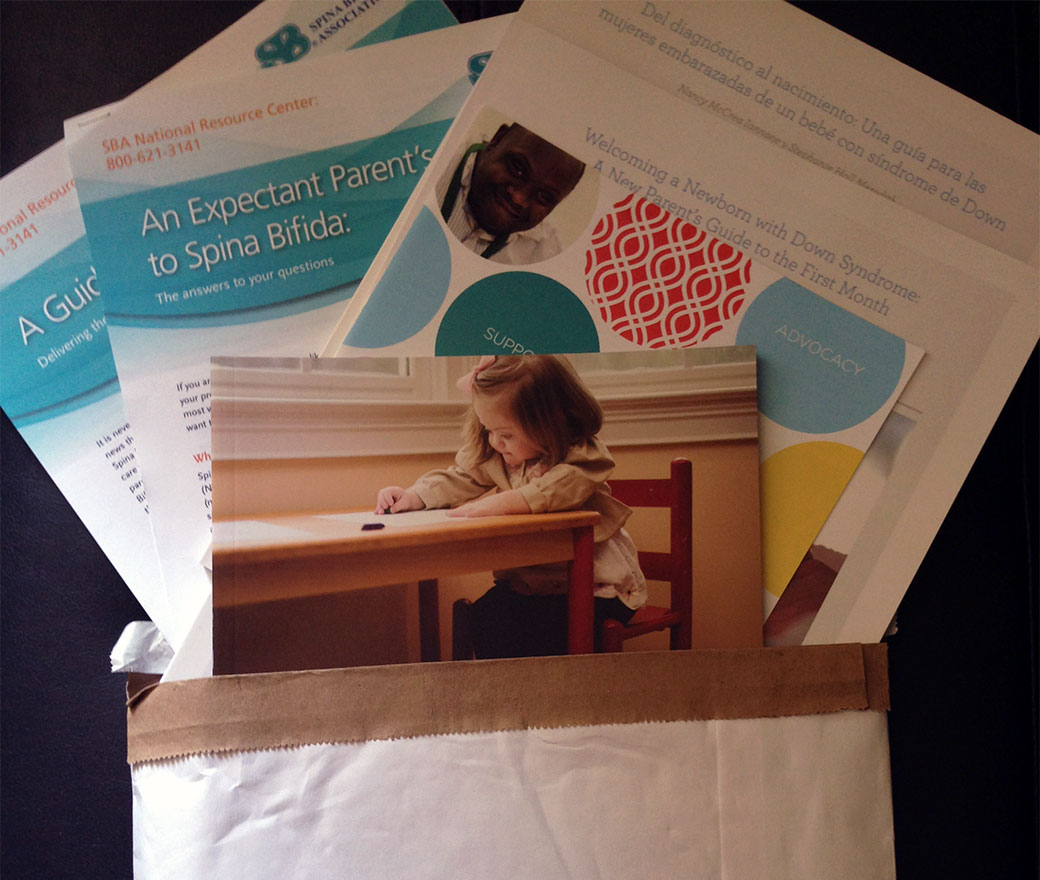During the week of Aug. 25, the University of Kentucky’s Human Development Institute (HDI)/National Center for Prenatal and Postnatal Resources and the Spina Bifida Association of Kentucky (SBAK) are mailing packets of accurate, evidence-based, current, and medically reviewed information about Down syndrome and spina bifida to nearly 400 obstetricians statewide.
These resources for new and expectant parents cover physical, developmental, educational and psychosocial outcomes, life expectancy, clinical course, intellectual and functional development, local support group information, and treatment options. Families who receive the news that their child has a prenatal or postnatal diagnosis are often overwhelmed and need up-to-date information handed to them right away to understand what the condition means.
The mailing is being funded by a grant from WHAS Crusade for Children, as well as HDI, SBAK, and local Down syndrome organizations to help clinicians meet the requirements of the recently passed Down Syndrome and Spina Bifida Information Acts (SB 159) in Kentucky. This law is important in assuring that families get the full spectrum of support following a prenatal or postnatal diagnosis of Down syndrome or spina bifida.
Notably, Kentucky has some of the highest rates for spina bifida in the nation, including Eastern Kentucky with twice the national average. The packets will also include information from local Down syndrome organizations, including Down Syndrome Louisville, the Down Syndrome Association of Central Kentucky, the Green River Area Down Syndrome Association, and the Down Syndrome Association of Western Kentucky, explaining what they offer as support organizations.
“HDI is the home of the National Center for Prenatal and Postnatal Resources (downsyndromediagnosis.org), including Lettercase, Down Syndrome Pregnancy, and Brighter Tomorrow. All of our materials have been reviewed by nationally recognized medical and disability experts,” said Stephanie Meredith, medical outreach director at the Human Development Institute. “Our goal is to make sure that families throughout Kentucky get the support and accurate information they need at a time often described as a flashbulb memory — that moment of diagnosis indelibly marked in their memory for a lifetime. This law and this distribution will give clinicians and patients the tools they need to give a framework of support during that defining moment.”
Shannon White, executive director of SBAK said, “This law will change countless lives across Kentucky. Babies born today with spina bifida have a normal life expectancy. Children and adults with spina bifida have average to above average intelligence and can go to college, work in meaningful careers, and have families of their own. Many can walk, and those who cannot, use their wheels to go anywhere an able-bodied person can. That’s why this new law is so important. It will allow expectant parents across the state to receive the information and support they need to make informed decisions.”



